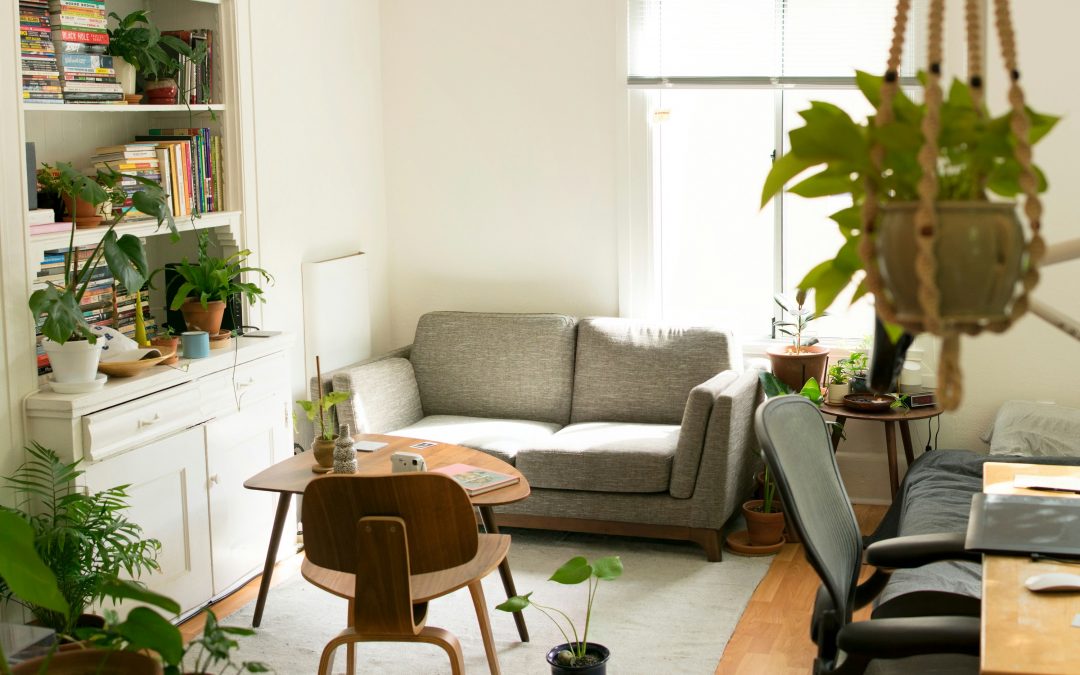Indoor Air Quality In Winter Las Cruces. Winter in Las Cruces, New Mexico brings cooler temperatures, shorter days, and a shift in how we use our indoor spaces. While the weather doesn’t reach the extreme cold of northern climates, many still rely on heating systems and keep their homes tightly sealed to stay comfortable. Unfortunately, this can lead to poor indoor air quality (IAQ), which affects health and comfort. Optimizing indoor air quality during winter is crucial, and doing so naturally offers several benefits.
Why Indoor Air Quality Matters in Winter
During winter, homes are often sealed to keep the cold air out and retain warmth, which reduces ventilation. This limited airflow can trap dust, pet dander, mold spores, and volatile organic compounds (VOCs) from cleaning products, furniture, and other household items. Prolonged exposure to these pollutants can lead to respiratory problems, allergies, headaches, and even fatigue.
Improving indoor air quality not only enhances comfort but also helps prevent winter-related health issues such as colds, flu, and aggravated asthma. Utilizing natural methods to improve IAQ is eco-friendly, cost-effective, and prevents the introduction of additional chemicals into your home.
How to Improve Air Quality in Home Naturally
- Increase Ventilation Without Losing Heat
- Open windows strategically for a few minutes each day, especially during the warmest part of the afternoon, to allow fresh air to circulate.
- Use exhaust fans in kitchens and bathrooms to remove moisture and pollutants.
- Consider installing energy recovery ventilators (ERVs) that maintain airflow while conserving heat.
- Adopt a No-Shoe Policy Indoors
- Shoes can track in dirt, pesticides, and other outdoor pollutants.
- Place mats at entryways and establish a shoe-free zone to reduce the spread of contaminants.
- Incorporate Indoor Plants
- Certain houseplants like snake plants, peace lilies, and spider plants are natural air purifiers. They absorb carbon dioxide and VOCs while releasing oxygen.
- Avoid overwatering plants to prevent mold growth.
- Use Natural Air Purifiers
- Salt lamps are believed to release negative ions that can help purify air, though their effects are debated. They also add a calming ambiance.
- Activated charcoal bags can absorb odors and toxins naturally without releasing any chemicals.
- Control Humidity Levels Naturally
- High humidity fosters mold and dust mites, while low humidity can dry out respiratory passages. Aim for 30-50% humidity.
- Use natural methods like placing bowls of water near heating vents to add moisture to the air. Adding a few drops of essential oils can also provide a pleasant scent.
- Clean Regularly with Natural Products
- Dust and vacuum frequently to remove allergens and pollutants. Use a vacuum cleaner with a HEPA filter to trap fine particles.
- Switch to natural cleaning solutions made from ingredients like vinegar, baking soda, and lemon to avoid introducing harsh chemicals into your home.
- Optimize Heating Systems
- Replace HVAC filters with high-quality HEPA filters, which trap fine particles.
- Schedule regular maintenance to ensure your system is operating efficiently and not circulating dust or debris.
- Consider adding a humidifier attachment to your HVAC system to maintain balanced humidity levels.
- Avoid Synthetic Fragrances
- Many candles, air fresheners, and scented products release VOCs. Opt for natural alternatives like beeswax candles or essential oil diffusers.
- Simmering a pot of water with cinnamon sticks, cloves, and orange peels can create a natural, pleasant aroma.
- Use Window Coverings Strategically
- Heavy curtains can trap dust and allergens. Clean them regularly, or switch to easily washable options.
- Open curtains during the day to let in sunlight, which naturally reduces bacteria and mold.
Season-Specific Challenges in Las Cruces
Austin’s mild winters mean fluctuating temperatures and humidity levels, making it essential to stay proactive. While not as harsh as colder climates, these factors can still create ideal conditions for mold growth and allergen buildup, especially in older homes.
Additionally, Austin’s cedar pollen season overlaps with winter, intensifying allergies for many residents. Maintaining clean indoor air during this period is especially critical for those sensitive to allergens.
Benefits of Improving IAQ Naturally
- Healthier Living Environment: Reducing indoor pollutants lowers the risk of respiratory problems, allergies, and other health issues.
- Energy Efficiency: Many natural methods, like improved ventilation and plant use, require no additional energy.
- Cost-Effective: Using household items and nature’s solutions, such as plants and vinegar-based cleaners, saves money compared to high-tech solutions.
- Eco-Friendly: Natural methods minimize chemical usage and environmental impact.
Optimizing indoor air quality during Las Cruces’s winter months is vital for maintaining a healthy and comfortable living space. By adopting natural methods such as increasing ventilation, incorporating houseplants, and using non-toxic cleaning products, you can create an environment that supports your well-being while respecting the planet.
Taking small, consistent steps to improve IAQ can significantly enhance your quality of life during the winter season. Not only will you breathe easier, but you’ll also create a more sustainable and health-conscious home for years to come.

